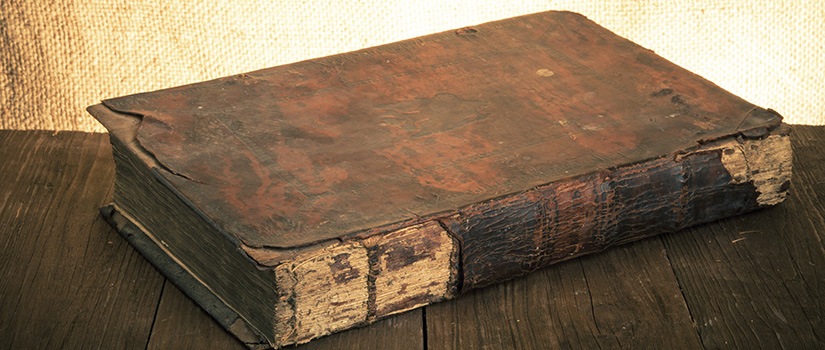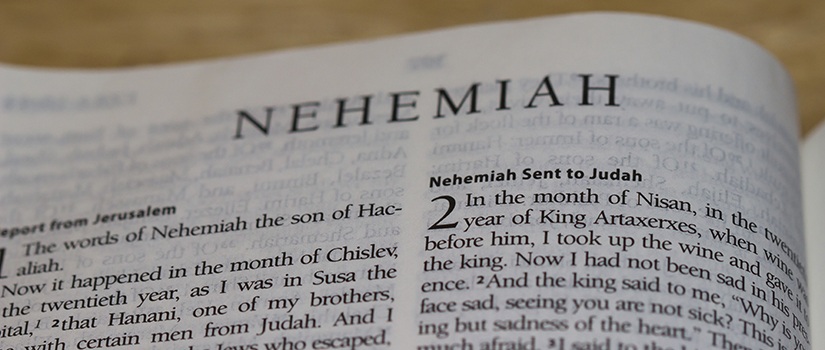RUTH
1. INTRODUCTION
The book of Ruth according to the Greek translation is placed in the Historical Books. English Bibles follow the order of the Septuagint.The book gets its name from its main character but the authorship is unknown. It appears the date of the book is in the period of the Judges. It seems the earliest date for the book’s composition is during the days of David according to Ruth 1:1 and Ruth 4:7 which says “Now it came to pass in the days when the judges ruled, that there was a famine in the land. And a certain man of Bethlehemjudah went to sojourn in the country of Moab, he, and his wife, and his two sons.” Ruth 1:1 (KJV) ” Now this was the manner in former time in Israel concerning redeeming and concerning changing, for to confirm all things; a man plucked off his shoe, and gave it to his neighbor: and this was a testimony in Israel. ” Ruth 4:7 (KJV)
Also according to Ruth 4:17-22
17 And the women her neighbors gave it a name, saying, There is a son born to Naomi; and they called his name Obed: he is the father of Jesse, the father of David.
18 Now, these are the generations of Pharez: Pharez begat Hezron,
19 And Hezron begat Ram, and Ram begat Amminadab,
20 And Amminadab begat Nahshon, and Nahshon begat Salmon,
21 And Salmon begat Boaz, and Boaz begat Obed,
22 And Obed begat Jesse, and Jesse begat David.
The book is one of historicity based on the fact that Ruth’s name is included in the genealogy of Christ.
A. The book of Ruth is a love story
1. It is the romance of a poor, widowed, Gentile servant girl and a rich powerful Jew of Bethlehem
a. The poor widows name is Ruth, wealthy Jew is Booz.
b. The story reads like a novel and is full of pathos and drama
c. There are an alternating sorrow and joy, tears and laughter, weeping and singing.
2. It ends in storybook fashion with the marriage of a poor girl to a rich prince charming
B. It is one of the clearest portraits of the love of a poor girl rich prince charming
II. The Time of the Events (Ruth 1:1)
A. We have a precise summary of the conditions which developed during the days of the judges
1. Every man did that which was right in his own eyes
a. According to modern thinking the state of thing as describes in this verse would be perfectly ideal.
b. Twentieth-century man would see this state of society as permitting the large.t measure of personal liberty
c. Time of Policial Turmoil that state of human society, wherein there is “no king” – that is, no one having authority to curb restrain and control – and wherein, as a consequence, “everyman” is free to do “that which is right in his own eyes,” is a state approximating pure Democracy.
d. We have in the days of the judges the only democratic period in the history of Isreal.
e. In Egypt they were slaves – In the wilderness, Moses was “King of Jeshurim” (Deut. 33:5)
f. In Canaan Joshua exercised kingly authority (Joshua 1:2Ä18) (Joshua 4:14)
2, What a contrast this is with the ensuing period of the judges
a. According to the thinking of many the change from the autocracy íf Moses and Joshua to the democratic era of the judges was a great advance.
b. According to modern thinking, it should have introduced a period of unparalleled prosperity and progress in all departments of human activity,
c. They had ample time to make this experiment work approximately 450 years.
3. For those who believe God and His Word it would be well to study the book of Judges and discovered that pure democracy both in the church and in government ha.s no precedent in Scripture. It would be the part of wisdom for those who are shaping (or trying to? at least) the political destinies of the world at this critical hour, to learn from that book what conditions must inevitably develop in any society where there is no king, and where every man claims liberty to do that which is right in his own eyes.
4. We learn from the book of Judges that something more than a knowledge of God’s revealed will is needed to restrain men from doing their own will.
a. A vital need in every human society is Authority
b. Would anyone argue that a leading characteristic of our day is “the decay of authority”.
c. This process of decay was foretold in a vision which God gave to Nebuchadnezzar (Den. 2: 42 – 44
d. In Judges God seems to impress upon us that the evil development of that time was due to the fact that there was “no king in Isreal)
e. Judges 17:6 Ä Judges 18:1 Ä Judges 19:1 – Judges 21:25
B. Time of Moral Turmoil
1. These were days of increasing moral corruption & violence
a. Such was the character of the days before the flood (Gen. 6:11 – 13)
b. It is important we take note of this because the Lord Jesus foretold that “as it was in days of Noah so shall it be in the days of Son of Man (Luke 17:26)
c. Do I have to dwell on the violent methods to which men resort to the attainment of their own ends?
2. Those who raise the voice in protest against immorality, pornography and violence are treated with contempt and scorn
a. (Anita Bryant – our own protest, CUD)
b. The conditions were such in the period of the judges (Judges 18:25)
C. Time of Religious Turmoil (Jude 18:1 – 31)
1. This period was characterized by an independence in things pertaining to the worship of God.
a. Such conditions are prevalent in our land as few others
b. We are tolerant of all religions, it seems you dare not speak of the worst of them lest you be considered a bigot
2. Religious freedom in a democratic era affords the conditions in which every system of error flourishes amazingly and in which all the heresies of centuries spring to new life.
a. Under these conditions the God of this age enjoy the greatest possible advantage to deceive precious souls and lead them to eternal destruction. Book of Ruth ties on a black background.
III. God’s Grace Still Shines Through
A. The continual departures and the superficial revivals did not quench the love of God.
1. There were repeated tokens of God’s continued interest and of His unchanging love for them
2. Again and again, when they called upon Him, He delivered them out of the hands of their enemies
a. This in spite of the fact that they had brought the troubles upon their own heads
b. Their surface spiritual commitment and their up and down relationship are described in Judges 2:16 – 17 and Psalms 106:34 – 35.
A Summary and Exposition of Ruth chapter 1.
The Departure from Bethlehem (Ruth 1:1)
A. Our story begins in Bethlehem at the time of a famine
1. The strange thing about a famine in Bethlehem is the very name means “House of Bread”
a, It is fittingly the birthplace of Him who is the Bread of God” come down from heaven to give life unto the World.
b. It seems a strange contradiction to have a famine in Bethlehem. If there is no bread there where can it be found?
c If there is a famine in Bethlehem it is the fault of the people of God.
d. God has promised to bless and care for the land if the people care for Him, to love and serve Him (Deut. 11) ( II Chr. 7:13 – 14)
2. The famine was from God because of the disobedience of His people.
a. God’s visitations in chastisement are not for the punishment of our sins but rather they are to lead us to repentance and recovery.
b. God uses the judgments to make us feel our own weakness and helplessness and then to seek deliverance and mercy from Him.
B. Elimelech made a serious mistake in leaving God’s land, by doing so he was seeking to escape the rod of God’s wholesome discipline
1. When God’s disciplining hand comes upon us we should humble ourselves and seek the purpose of it.
2. Isn’t all of this a picture of what happens in the life of a Christian?
a. Our spiritual experience with Jesus is a land of milk and honey.
b. If we turn away and seek satisfaction in this world, then God shuts up heaven and there is no rain
c. No peace – no joy – guilt and dissatisfaction
d. The refreshing moving of the Spirit gone from the heart, the Bible becomes dead, prayer is hollow, and the joyous testimony is gone.
e. It is far worse to have this spiritual famine than a physical famine
f. Amos 8:11 – speaks of a famine not of bread, but of hearing the Word of God.
III. Natural Way Out
A. Instead of seeking God’s face, and seeking His deliverance from this famine – Elimelech found another way.
1. Elimelech way out was to go to the land of Moab
a. The heathen, Gentile country seemed to have no famine
b. When you depart from God the World system seems to be very alluring. So many pleasures are there. At least on the surface that’s the way it is.
2. Notice when he departed it was to be a brief sojourn
a. Notice what happened (Ruth 1:1,2,4)
b. Elimelech never came back, neither did his two sons
c. Only Naomi made it back and her comment upon her return is extremely interesting (Ruth 1:21)
B. Why do believers leave the land of Bethlehem?
1. Elimelech left not because Moab was so attractive but because Bethlehem was so dry
2. Most often it is the same in the case of a believer.
a. Jesus is not real anymore – Don’t get anything out of the message
b. Now they feel they must have some fun out of life, something to occupy their time.
c. It now seems there is nothing among the saints to attract them for everything seems so dry and dead
d. But whose fault is it? Is it the church, other Christians? We put blame on them.
e. But could it not be that it is you who is dry and because of it you find fault with other
3. Instead of facing the fact that I am dry, I blame other Christians and head for Moab.
a. We think that we will find something there that will substitute for what we have lost
b. When this happens we have involved ourselves in a whole range of new problems.
c. We may get caught up in a series of moral collapses. What happens then? A mountain of guilt crushes down upon our shoulders
d. Now we are sure there is no way that we will ever get back to Bethlehem.
e. Like Elimelech we are quite sure we must die here.
4. Remeber it all starts by telling ourselves that these excursions to Moab are only going to be for for a short time Ä just a sojourn.
a. Just a little lowering of the standards in order that we can enjoy what the world has to offer.
b. Maybe for you that short time is a long time
IV. God’s Way Back
A. If you are the far country – God will take means to bring you back
1. Naomi was not long in Moab before God began to work to bring her back.
a. God loves us so much He will bring us back if we are truly His.
b. Our way back may be hard and bitter – if that is what it takes to do it – God will bring it to pass
B. God Used two things to bring her to repentance!
1. He laid His hand of discipline upon her family
a. God took her husband – that wasn’t quite enough to awaken her soul
b. Then God took her two sons, this left her alone in a country to which she did not belong
2. God had indeed caused life in Moab to be bitter for her.
a. Call me not Naomi (Pleasant) call me Mara (bitter)
However, let me say emphatically that these experiences are not to be regarded as punishments. They are always and all the time restorative in their intention, rather than punitive. Whatever a man may suffer, no matter how grievous or calamitous, it is never to be regarded as a punishment for sin, for the simple reason it can never be severe enough to be so regarded. The only adequate punishment for sin is what Jesus bore in His body on the tree for us. There and there only do we see the due reward for our sin. What comes to us is designed to bring us back to the God who loves us, by provoking us to repent of our wrong choices and by making the far country less attractive for us to remain there. As Cowper said – behind a frowning providence – He hides a smiling face.
b. Please do not misinterpret God’s dealings
c. It is a natural thing to feel that God is against us when we have a guilty conscience
. Whatever our adversity means it can not mean He is imputing unto us our trespasses. They were already imputed to Christ on the Cross. ( II Cor, 5:19)
e. It is simply the love of God intent on restaining us and carrying out His will for our lives’.
2. Second thing to bring Naomi back to Bethlehem was the news of revival back home (Ruth 1:6)
a. What a picture of revival this is.
b. Such news coming to Naomi in her condition was great Indeed. It was the means to turn her back home
3. Under the influence of God’s discipline and the good news of what God was doing back home, Naomi repented of ever having left Bethlehem in first place
a. Her comment about God having dealt bitterly was not a complaint but a humble recognition that God was just and that she had learned her lesson
b. Our repentence is the recognition that God is right in afflicting us and we have no complaints
c. It is our acknowledgement that God is right in His dealings with us and that we have been wrong in our dealing with Him.
4. At the Cross of Jesus we can afford to be wrong because
Pardon there is multiplied to me,
There my burdened soul finds liberty,
At Calvary.’
RUTH 1:3-5
ISRAEL AMONG THE NATIONS
I. Introduction
A. The Book of Ruth in addition to being a beautiful love story is also a book of prophecy.
1. It clearly depicts the plan and purpose of God for the nation of Israel.
2. Naomi is a picture of the nation of Israel dwelling happily in their land.
3. Then comes the judgments of God and drove them from their homeland into a Gentile country where she sojourned for about ten years.
B. The story of Naomi sojourn in Moab is brief but it is inexhaustible in its teaching.
1. Moab was the son of Lot, the backslider nephew of Abraham.
2. After Lot’s deliverance from Sodom, his two daughters got him drunk and went to bed with their own father.
3. Out of this incestuous relationship, two sons are born – Moab and Ben-Ammi. They are the ancestors of the Moabites and the Amorites.
4. They represent the world of sin and corruption.
II. Into This Land Comes the Family of Naomi
A. Once a family moves to Moab (God’s Washpot) we can expect a spiritual decline.
1. The next thing we read after their move to Moab is found in verse three. Elimelech died.
2. Elimelech means “God is My King.”
3. Israel like Elimelech is driven from their land and in the process loses their fellowship with God.
4. We read in Hosea that they are Lo-Ami – not my people.
5. God is no longer their king.
B. In our own lives when we leave sweet fellowship with Jesus when we leave God out of our lives and plans.
1. It can be said of us “God is no longer our King”
2. We begin to live our lives on the plane of self-will.
3. God’s will is no longer paramount to us.
C. Next thing we read is that Mahlon & Chilion died.
1. Naomi’s whole stay in Moab was a time of death and funerals until out of a family of four, only one is left.
2, It could go no further without wiping out the name of the family forever.
III. It’s a picture of the nation of Israel
A. Israel, like Naomi was forced from their land into Gentile country, only to find it a place of death.
1. Disowned by God, the nation was reduced until they too were few in number.
2. The names of her two sons were suggestive of her sojourn in the land of the Gentiles.
3. Marion means sickly or consumptive one.
4. Chilion means the pining one.
5. It was a place of consumption, of sorrow, of pining away. It was also a place of graves among strange people.
B. For centuries this has been the condition of the nation of Israel among the nations of the world.
1. Before Israel ever set foot in Canaan, God had foretold exactly what their future history would be.
2. First, he prophesied their prosperity in the land Lev 26:3-12.
3. But there were conditions attached to these promises, when Israel failed to meet them they were driven from their land, where they too experience sorrow, sickness, and death. (Lev 26:32,33,38,39)
4. History records this in detail. In 7OAD Titus captured Judah and sacked the city of Jerusalem.
5. Israel was scattered to the four corners of the earth and all the things mentioned in Lev. 26 have happened to them.
IV. In Conclusion, Let’s Consider Naomi’s time in Exile.
A. Verse four says it was about ten years.
1. It does not say ten years or nine years. It was almost ten years.
2. Since we believe in verbal inspiration, there must be some reason for the word “about” ten years.
3. In Bible numerics, each number has a meaning
B. One-number of sovereignty – Two – division, Three – completeness – Four – the earth, Five – Grace, Six-Man, Seven – perfection, Eight – a new beginning, Nine – judgment, Ten – testimony.
1. Since nine is the number of judgment and then the number of testimony, we have the expression about 10 years.
2. It was the end of the period of judgment (9 years) and the testimony of God’s faithfulness to Naomi in bringing her back into the land.
3. After returning to Bethlehem, Naomi’s lost property is returned to her through the act of a gracious Redeemer.
4. The story ends with Naomi living happily in her land.
C. Like Naomi, the days of Israel exile is about over.
1. Like Naomi, Israel is on the way back to her ancient land.
2. It stands before us today represented by the State of Israel flying the flag of David.
3. Soon after the marriage of the church foreshadowed by Ruth will take place, the Lord Jesus will soon return and we will rise to meet Him in the air.
4. Seven years later Jesus will return to the earth and Israel will be fully restored to her inheritance.
5. Ruth had to make a decision or be left behind. You too must make a decision or you will be left behind.
Ruth 1:6
Good News From Home
I. Introduction
A. .1. You remember it was adversity that softened her heart.
2. The loss of her husband and her children were preparing her to go back to the place of God’s blessing and joy.
B. The things that happen to us should be the means by which we look within to determine our relationship with the Lord.
II. A Second Thing Happened
A. God used the second thing to bring Naomi back to Bethlehem, it was news of revival back home.
1. She heard in Moab that God had visited his people in giving them bread.
2. The famine had vanished, the fields were full of grain and the people were rejoicing.
3. What a picture of revival that is.
a. It could only mean that some folks back home had been repenting of sin,
b. Maybe some prophets had preached and the people responded and God now was healing their land.
c. Such news coming to Naomi in her need and misery would cause her heart to turn toward home.
d. It was so with the prodigal son in the N.T.
e. He remembered how his father’s servants had bread enough and even some to spare. The remembrance of that was enough to turn him back home.
B. Under the influences of God’s discipline and with the news of revival back home, Naomi repented of ever having left Bethlehem in the first place.
1. This is abundantly clear by her statements
2. Notice how she expressed her feelings: “the Almighty hath dealt very bitterly with me;” and in another, “the Lord hath testified against me, and the Almighty hath afflicted me.” There is no spirit of complaining about these words, just a gracious, humble recognition that she had been suffering under the hand of God and that she had learned her lesson.
3. The way of repentance is the way back to God and to blessing.
a. Repentance is justifying God, it is the recognition that we are suffering under His hand and that He has been right in afflicting us.
b. It means we take the blame for the situation and rest on the goodness and grace of God to rescue us.
III. Naomi Returns to Nothing
A. We come now to the main part of Chapter I of Ruth.
1. Naomi came back to nothing.
2.She herself said; I went out full, the Lord hath brought me home empty.
a. She went out with her husband and two sons. She came home empty.
b. She left with some money – she came home empty
c. She left with a home and lands, she came back to find them grown over and the home decaying.
d. She didn’t have any men left to work the farm.
3. That can be much like our own situation.
a. When we come back to God we come back with nothing.
b. Having stained ourselves with sin at guilt, how do we go about regaining peace.
4. Having messed things up what can we do to straighten them again.
a. The answer is, if only we will face it, is that we can do nothing.
b. We have limitless power to commit si, what giants we are in that realm, but we have no power to undo its effects once it is done.
c. We think if only we can become better Christians that will make things right.
5. The moment I feel I have to become a little better to qualify, that moment I am defeated for I know its that becoming just a little better than defeats me.
a. Bill Gaither expresses it this way in one of his songs.
If there ever were dreams that were lofty and noble,
Those were my dreams at the start;
And the hopes for life’s best were the hopes that I harbored,
Deep down in my heart;
But my dreams turned to ashes, my castles all crumbled,
My fortune turned to loss;
So I wrapped it all in the rags of my life,
And I laid it on the cross.
B. At that cross, there is an encouragement. Though Naomi returned empty, she did not remain empty.
1. That’s what the story is all about – how the empty became full.
2. It was all because back home in Bethlehem there was one who was near kinsman.
a. Like Naomi, we don’t have to remain empty for in coming back home to the Lord Jesus as an empty sinner, we become a candidate for the gracious provision of our kinsman redeemer.
b. As our kinsman redeemer, He has the right to redeem everything that stands against me.
IV. Ruth the Convert
A. There is one important matter in which Naomi differed from the prodigal son in the N.T.
1. When Naomi came back from the far country, she brought someone with her.
2. All too often when we get away from God we drag others down with us.
a. But it sometimes happens that when we repent and get right with God, others are induced to do the same and come back with us.
b. Ruth came home with her and actually embraced the Lord as a result of Naomi’s repentance.
B. Perhaps up to her going back to Bethlehem and confessing her sin of ever leaving: Ruth thought of Naomi’s God as the good person’s God.
1. For in Ruth’s eyes, Naomi always seemed so good and able to stand adversity
2. Ruth as a poor gentile never felt herself to be like that, she felt like a Moabite she didn’t qualify for such a God.
a. But the day saw her mother repenting and confessing her sin, Rufh began to see that Jehovah was the sinner’s God.
b. He is the friend of sinners to quote the N.T.
c. This I suggest is what lay behind Ruth’s choice.
d. Does this idea commend itself
********************
If you have enjoyed reading this Just A Thought post, please consider sharing on social media. Your efforts will bless this ministry and prove to be a blessing to others that may not know about Everyone’s Apostolic









